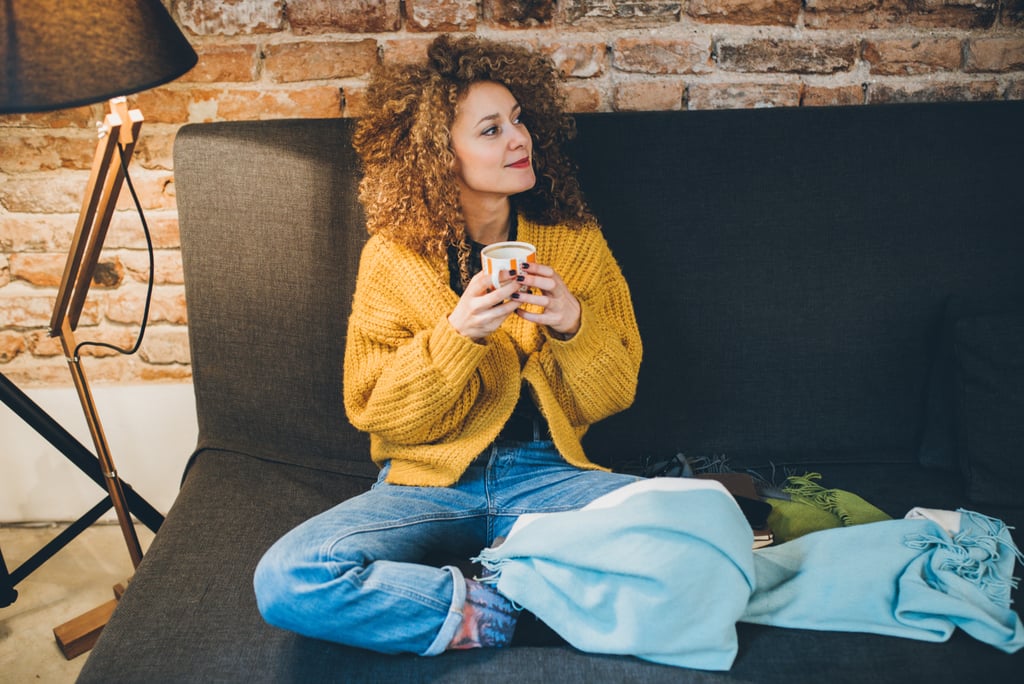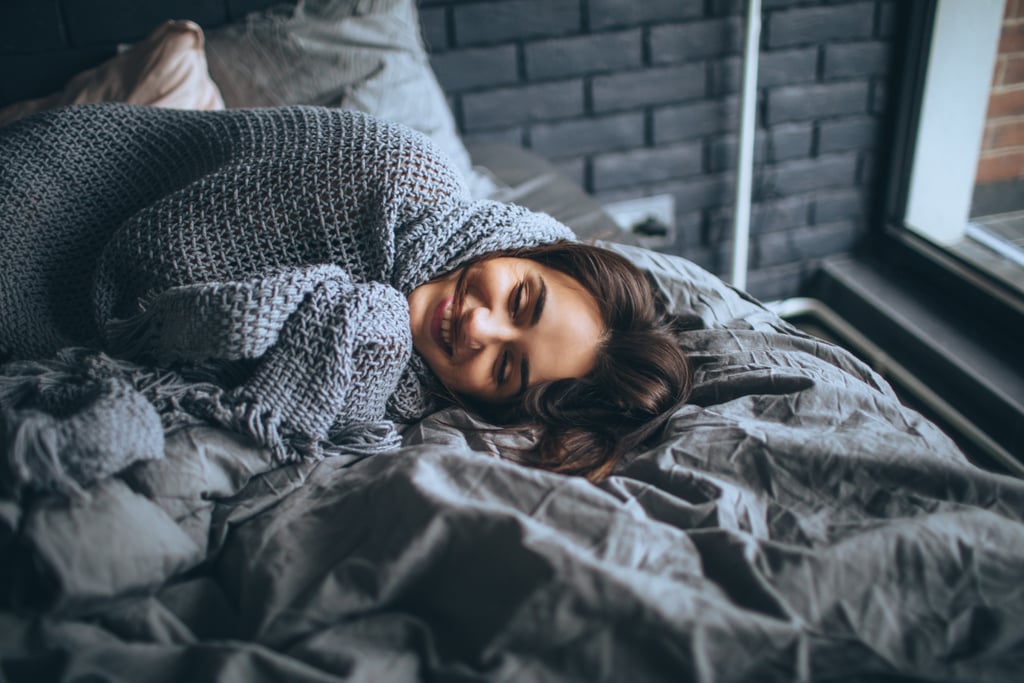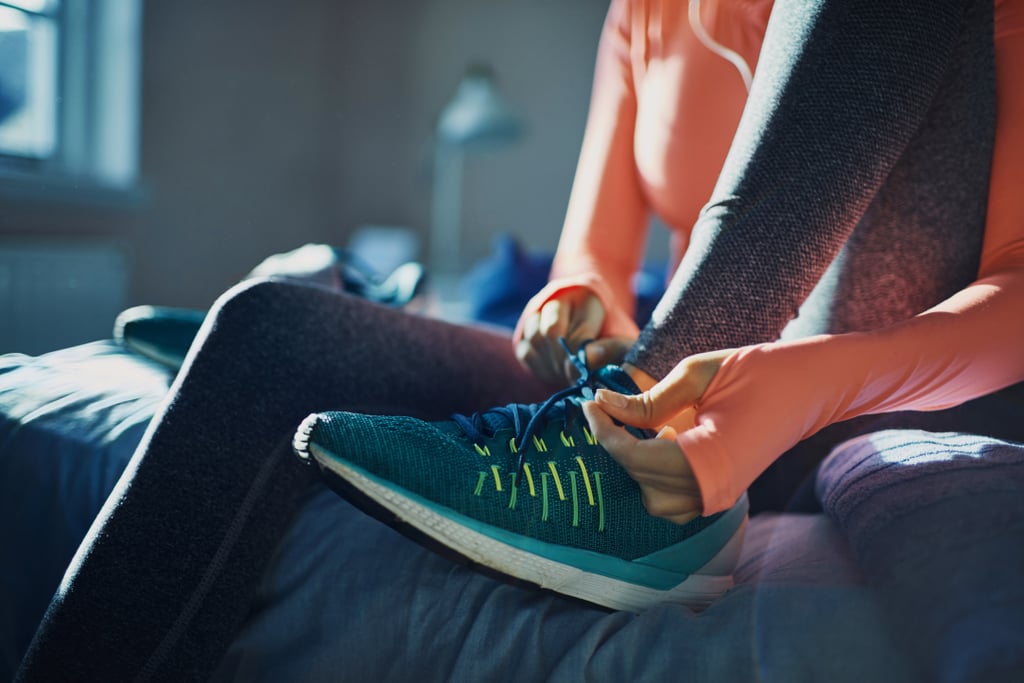Because I'm a freelance writer, I make my own schedule. I usually prefer to go to bed late, around midnight or 12:30 a.m. and wake up seven to seven and a half hours later, but recently I found myself working later or getting distracted, and the time I spent asleep became shorter and shorter. An hour would pass and then another one, and I'd end up making dinner around 10 or 10:30 in the evenings, and going to bed well past that. Then the next morning I'd wake up feeling even more sluggish [1].
I realised my nighttime routine needed improvement [2]. Not only was this late-night dinner habit bad for my digestion [3], but it also made me stay up later than I'd like, too stimulated to power down and get into bed.
So, I chose to do a little experiment. For a week, I'd try to eat dinner earlier, but most importantly, I'd force myself to skip the distractions — usually in the form of one last episode of a Netflix show or one last song (I love an impromptu dance party) — and go to bed at least 20 minutes earlier than even my usual bedtime. With any luck, I'd also fall asleep faster [4] — no longer stressed about how late it was getting — and inch closer to eight heavenly hours of sleep. While seven hours is the minimum recommended by experts [5], I was curious if I'd feel more rested with a full hour.
Spoiler: I did. Getting closer to eight hours of sleep made a huge difference in my energy levels [6]. After one week, I'm definitely sticking to this new routine, no matter what — here's why.
Turning Off the TV Made Me Drowsier
I like to watch TV in the evenings, but I find it difficult to immediately hop into bed after turning off the screen. (It's no secret that the blue light from devices can mess with your sleep [7].) Lying in bed awake only made me anxious, making it even harder to fall asleep.
It didn't take long for me to notice that turning off the TV an episode earlier — about 20 to 30 minutes before getting in bed — helped prime my body for sleep. I even slept more soundly throughout the night. Starting the fourth day, I was better rested and more energized, so I laid under a weighted blanket [8] and drank some hot tea until I started to feel tired. By the end of the week, I loved this ritual of switching off the TV and relaxing for a few moments in silence before finally turning in.
I Felt Better in the Morning
No surprise here, but securing that extra bit of sleep — instead of laying in bed freaking out about how late it was getting — helped me feel more refreshed in the mornings. While I didn't jump right out of bed when my alarm went off at 7:30 or 8 (I've never been a morning person [9]), I did have an easier time prying myself out from under the covers. It was incredible the difference those 30 or 40 minutes of extra sleep made.
That energy lasted throughout the day, too. I was eager to get to my work space and tackle the day, and found that I was more productive once I got there. I no longer experienced an afternoon slump [10] or needed that extra shot of java.
My Workouts Were on Fire
I love an early-morning sweat session, and with my energy levels up, my workouts improved, too. I didn't need to get back in bed for a few minutes or stall in my pajamas. Instead, I changed into my workout clothes right away, put on some music, started my Tabata timer [11], and got to work. And once I started, I was able to go harder for longer and needed fewer breaks. By the end of the workout, I felt like I could've done more — it was invigorating.
I Ate Healthier
Because I was eating a bit earlier in the evening, I woke up ravenous. I personally can't work out on an empty stomach [12], so I ate a pre-workout snack within a few minutes of getting out of bed — either cottage cheese, some nut butter on crackers, or a protein bar.
What I didn't do: crave refined carbs and sugar, whether in the morning or throughout the day. Instead, I wanted good fats and lots of protein, which made me feel healthier and more energized. Science backs this up: adequate sleep has been shown to reduce sugar cravings [13], and even curb hunger by balancing the hormones that tell you when to eat [14]. No wonder my appetite seemed more predictable.
I Felt Less Stressed
With more sleep under my belt, my mood stabilized, right along with my appetite. I felt better equipped to handle stress [15], and the less anxious I became, the better I was able to sleep. (It doesn't seem fair that stress is so disruptive to sleep [16] when one is so essential to combating the other.) I entered a wonderful cycle that kept me feeling happy and rested during the day, and I never want to go back.




